Geeks is powered by Vocal.
Vocal is a platform that provides storytelling tools and engaged communities for writers, musicians, filmmakers, podcasters, and other creators to get discovered and fund their creativity.
How does Vocal work?
Creators share their stories on Vocal’s communities. In return, creators earn money when they are tipped and when their stories are read.
How do I join Vocal?
Vocal welcomes creators of all shapes and sizes. Join for free and start creating.
To learn more about Vocal, visit our resources.
Show lessHow Has 'Miss Peregrine's Home for Peculiar Children' Been Adapted for the Big Screen?
As a lover of the book, it's time for me to look deeper into the film adaptation of 'Miss Peregrine's Home for Peculiar Children.'
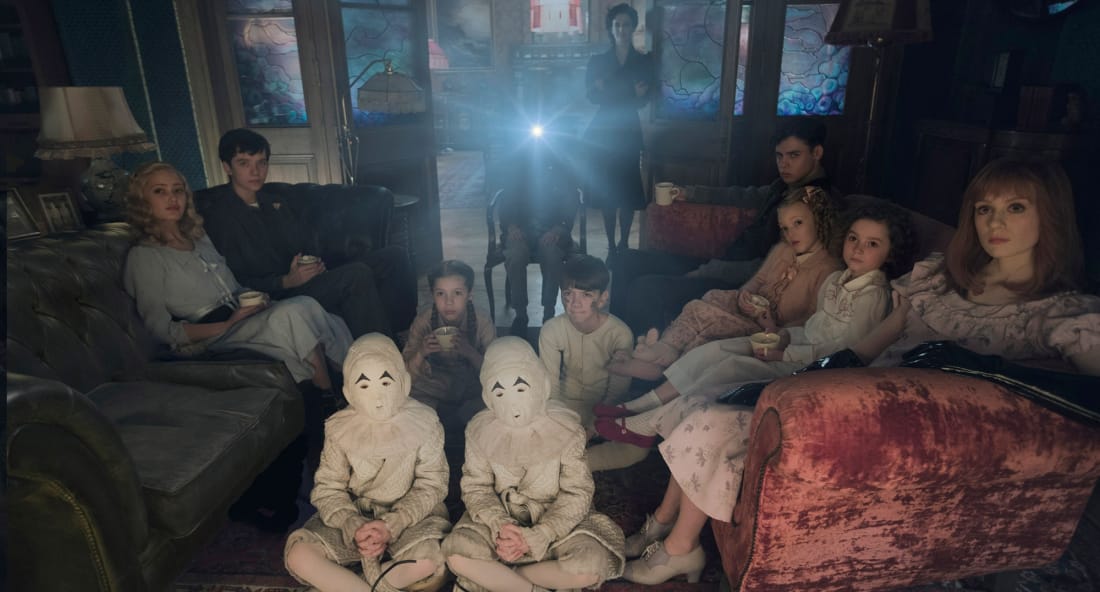
Gather round, children - let me tell you a story... Image: 20th Century Fox
How do you adapt a book for the big screen? It's a question that every filmmaker wrestles with on occasion, and everyone has a different answer. Some filmmakers choose to stick close to the source material, with the story playing out pretty much how every reader imagined it to. Others do drastic rewrites, with plots and characters changing. The latest example of the latter is Miss Peregrine's Home for Peculiar Children, a beautiful film by Tim Burton that's based on the New York Times bestseller by Ransom Riggs. As someone who loves both the book and the film, it's time for me to look at the decisions Burton made, analyze them, and explain them. Beware: spoilers follow!
The Concept

Meet the stars! Image: 20th Century Fox
At heart, the core concept of Miss Peregrine's is perfectly represented in the film. To be fair, it's such an unusual, macabre concept that you couldn't rework the ideas too drastically without losing the book's soul. We're swiftly introduced to a world hidden beneath the surface of our own, one where 'Peculiars' — people with strange, unusual abilities — hide from the human race's attention. A race known as Ymbrynes protect the Peculiars, hiding them in pockets of time that you can only enter at very specific places.
Both book and film exploit a classic approach to building a fantasy world, one that allows you to introduce the fantastical through the eyes of an everyday person. (Nowhere is the same approach better represented than in J. K. Rowling's Harry Potter franchise, where the mystical world is hidden from the eyes of us mere 'Muggles'.) In the case of Miss Peregrine's, the world is built off the back of unusual vernacular photographs that Ransom Riggs had collected; the photographs are actually part of the book, and form the opening credits for the film as well. I can happily say that Tim Burton treats this core concept as sacrosanct.
The Villains
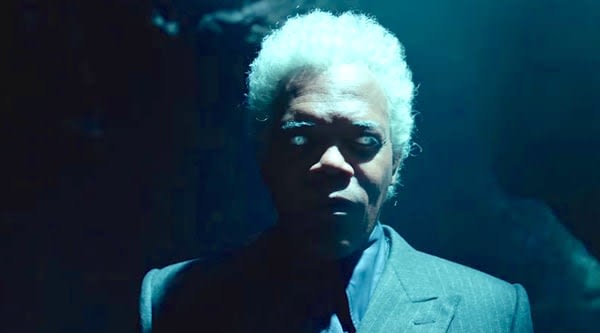
Jason Barron. Image: 20th Century Fox
Here's where the film diverges radically from the books, though. Where Ransom Riggs fleshed his villains out over the course of three novels, Tim Burton is clearly setting this up as a one-and-done film. As such, he had to make radical adjustments to the villains; although the Hollowgast still exist, the named villains and their backgrounds have been altered beyond any semblance of recognition. It's all because a single film won't give the opportunity to develop the villains in the same way.
Although the film perfectly represents the core concept of Miss Peregrine's, this change means that other fascinating ideas are gone; for example, the books establish that a Peculiar has a 'second soul', and it is this that the villains of the books are seeking to devour. You can only introduce so many concepts in a single film without losing the audience's concentration, so this is dropped completely.
The Plot
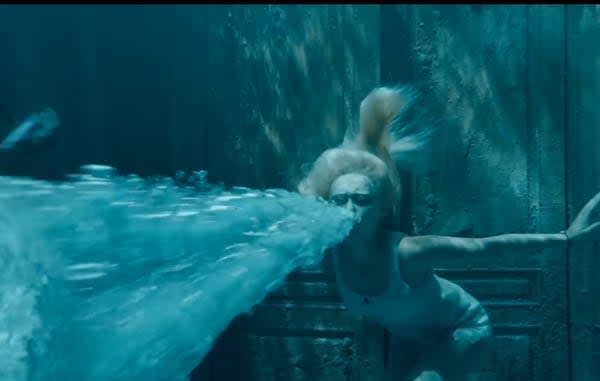
Emma uses her amazing powers. Image: 20th Century Fox
With the villains rewritten so drastically, it will come as no surprise that the plot too has been transformed. The opening half of the film is remarkably faithful to the book, but that changes when Samuel L. Jackson's Mr. Barron takes Asa Butterfield's Jake prisoner. From that moment on, the film travels a path completely different to the book's; it's actually fairly jarring, largely because that first half had been so accurate.
My suspicion is that this plot rewrite is as much a matter of pacing as anything else. The novels have a fairly sedate pace, one that is maintained across the course of the trilogy. The first half of the film keeps to the same kind of pace, taking the time to invoke a sense of wonder, but then accelerates after Barron's attack. This ensures the film keeps viewers' attention, and allows Burton to make the most of the world he's created.
The Characters
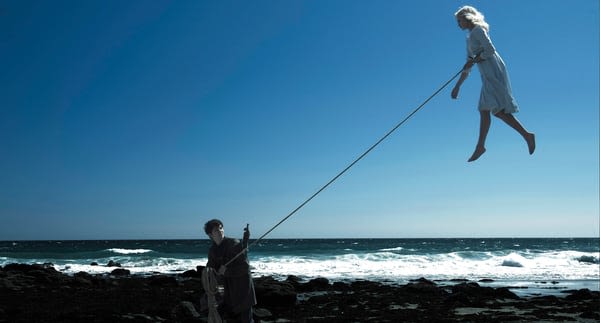
Lighter than air! Image: 20th Century Fox
This is where the rewrites get most fascinating. Let me focus on one particular Peculiar character; Emma, brilliantly played by Ella Purnell. In the book, Emma is a pyrokinetic, able to manipulate fire; the film switches her ability with that of Olive (played by Lauren McCrostie). So the Emma of the movie is lighter than air, needing to be anchored to the ground. Her Peculiarity — the ability to manipulate air — is a beautiful and entertaining one. Burton uses this to tremendous effect, introducing a shipwreck that Emma raises from the sea bed to give the Peculiars the chance to pursue Barron.
The change is a radical one, but it does make sense; Burton's film requires the power of air manipulation to be an important one, raising that ship and giving the Peculiars weapons with which to oppose Barron. Swapping the powers means the film can establish the importance of that ability early on in the film, and allows the ship in question to be introduced well before it becomes crucial to the plot.
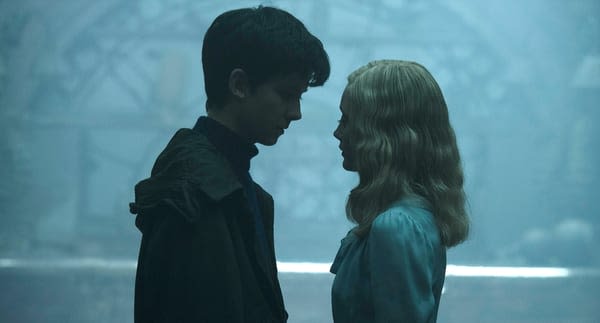
A beautiful scene. Image: 20th Century Fox
I'm normally quite defensive when it comes to books that I've loved. When films rewrite them to this degree, I find it frustrating; the world I've inhabited with my imagination has been transformed, in ways that just don't feel comfortable to me. Oddly enough, though, Miss Peregrine's is an exception. Everything in the film just seems to work, and all the changes that have been made are actually necessary in order to achieve that. The result is a film that's glorious in its own macabre, outre style; one perfectly suited to Tim Burton.
In my view, Miss Peregrine's is a peculiarly successful adaptation - even as it takes a remarkable number of liberties.
